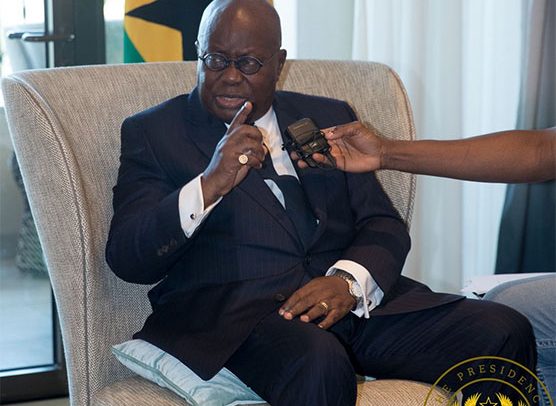President Nana Akufo-Addo
PRESIDENT AKUFO-Addo will lead the Ghana team which will be negotiating with officials from the International Monetary Fund (IMF) who are expected to arrive in the country today.
Minister of Information, Kojo Oppong Nkrumah, who disclosed this, said the government hopes to secure about US$2 billion from IMF to shore up the country’s reserves and build buffers to mitigate the hardships on Ghanaians.
He said the IMF officials will also assess Ghana’s macro fiscal data in order to make appropriate recommendation for a suitable programme for the country.
The minister, who was speaking on television Sunday night, said the decision by the government to return the country to the IMF was in the best interest of the country.
The government, on July 1, 2022, announced that it had decided to engage the IMF to provide balance of payment support to Ghana as part of a broader effort to quicken the country’s build back, in the face of challenges induced by the COVID-19 pandemic and, recently, the Russia-Ukraine crisis.
The Information Minister said the US$2 billion would help increase the country’s foreign reserves, and make available to the government liquidity to deal with the external debt servicing obligations as well as balance of payment support.
He revealed that there was US$1 billion from the international capital market which is ready for the country to access, but quickly added that this would require parliamentary approval.
For him, the support from the IMF alone would not be sufficient to deal with the current situation, intimating that there was the need for domestic resource mobilisation and an increase in production to address the challenges.
“There is no single bullet to deal with the economic challenges. The impact of the global crises [COVID-19 and Ukraine war] is so severe that some of the domestic measures introduced by the government though had worked, were unable to stop the impact on Ghanaians,” the minister pinned.
Mr. Oppong Nkrumah mentioned that “tough times call for tough decisions.”
NDC Vs NPP
For him, it would be wrong to compare the current economic challenges that called for support from the IMF, pointing out that the factors that led the country to the IMF in 2015 during the era of the NDC administration under ex-President John Dramani Mahama were fundamentally different from today’s.
“The economic challenge is not domestically induced, but rather an externally induced crisis.
“They (NDC) said the meat had been chewed and left with the bones but Moody’s assessment of the Ghanaian economy at the time noted mismanagement of the economy.
“Our situation is completely different because we’re in a global crisis and Ghana is not an exception. We need to deal with the crises holistically, and so we need to engage industries to grow and produce more,” the minister added.
He said the government would also take pragmatic steps to mobilise sufficient resources from the property rate and other domestic resources, while plugging the loopholes in the E-Levy transaction.
IMF 2015 Factsheet
The IMF said by 2015, Ghana’s economy was in trouble, hobbled by widening current account and budget deficits, rampant inflation, and a depreciating currency, while credit had dried up with interest rates rising and banks’ bad loans piling up.
The fund noted that at the root of Ghana’s woes was out-of-control government spending, eating away reserves with seven days of import cover before the NDC government requested a bailout in 2014.
When authorities officially requested the fund’s support on August 8, 2014, the cedi had depreciated by 40% with inflation in the double-digits, whereas interest rates stood at around 24%–25% on domestic debt.
Also, at the time, the central bank’s imports in net foreign exchange reserves was equivalent to US$400 million.
BY Ernest Kofi Adu


